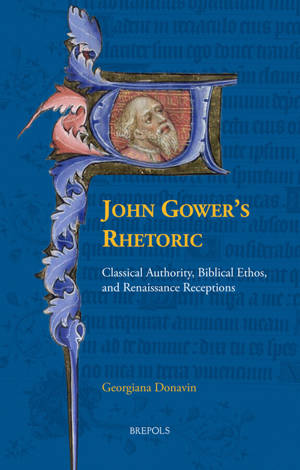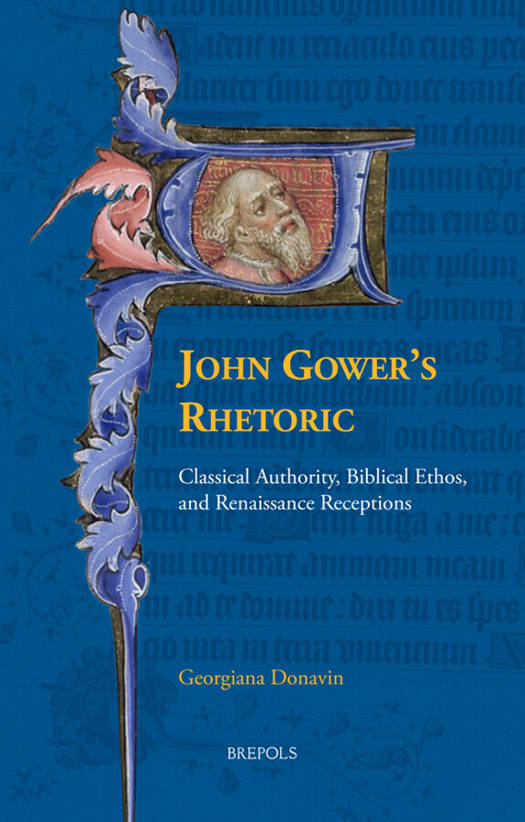
- Retrait gratuit dans votre magasin Club
- 7.000.000 titres dans notre catalogue
- Payer en toute sécurité
- Toujours un magasin près de chez vous
- Retrait gratuit dans votre magasin Club
- 7.000.000 titres dans notre catalogue
- Payer en toute sécurité
- Toujours un magasin près de chez vous
John Gower's Rhetoric
Classical Authority, Biblical Ethos, and Renaissance Receptions
Georgiana Donavin
Livre relié | Anglais
127,20 €
+ 254 points
Description
This is the first book-length study in decades to offer in-depth readings of a variety of late medieval poems across Gower's trilingual corpus. Identifying Gower's rhetorical cornerstones in Aristotelian pathos, the theology of the Word, and the execution of a plain style, it provides fresh interpretations of poems in Latin, French, and Middle English that arise from an enhanced understanding of Gower's literary methods. It explores the classical and medieval rhetorical traditions that informed Gower's craft, the biblical personae through which the poet achieved his rhetorical aims, and the Renaissance publishers and authors who valued and imitated his strategies for composition. Gower adapted his rhetorical theory from the principles of Aristotelian texts, Augustinian theology, exemplars of Ciceronian style, and the dictates of various artes poetriae; from the latter, John of Garland's Parisiana Poetria is especially important for outlining practices of Marian rhetoric. Modelling virtuous female speakers on the Virgin and prophetic narrators on John the Baptist and John the Evangelist, Gower gave extra-scriptural voice to members of the extended Holy Family and in so doing, achieved unimpeachable expressions inside classically informed structures of discourse. The epistolary structure, proceeding from Ciceronian rhetoric and the artes dictaminis, is one among Gower's favoured rhetorical forms for projecting singular voices. His straightforward, reiterative style in Middle English and his virginal speakers compelled Renaissance publisher Thomas Berthelette and celebrated authors Ben Jonson and William Shakespeare to praise Gower's rhetoric in prefaces and imitate it on the stage.
Spécifications
Parties prenantes
- Auteur(s) :
- Editeur:
Contenu
- Nombre de pages :
- 450
- Langue:
- Anglais
Caractéristiques
- EAN:
- 9782503595771
- Date de parution :
- 05-01-23
- Format:
- Livre relié
- Format numérique:
- Genaaid
- Dimensions :
- 160 mm x 240 mm
- Poids :
- 861 g







